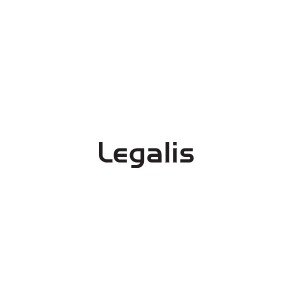Best Corporate Governance Lawyers in Oslo
Share your needs with us, get contacted by law firms.
Free. Takes 2 min.
List of the best lawyers in Oslo, Norway
About Corporate Governance Law in Oslo, Norway
Corporate governance in Oslo, Norway refers to the framework of rules, practices, and processes by which companies are directed and controlled. It ensures transparency, accountability, and ethical business practices within organizations. Norway upholds high standards of corporate governance, influenced by both national laws and international regulations. In Oslo, being the economic hub of Norway, sound corporate governance is essential due to the significant presence of public companies, multinational corporations, and major financial institutions. Good governance builds trust with investors, partners, and the public, strengthening the reputation and long-term success of companies operating in the region.
Why You May Need a Lawyer
Legal expertise in corporate governance is often required for guidance and representation in a variety of scenarios. Common situations include the establishment of company policies, structuring management boards, conducting mergers and acquisitions, ensuring compliance with corporate responsibility standards, resolving shareholder disputes, and handling regulatory investigations. Hiring a lawyer helps companies and their officers mitigate risks and avoid costly legal mistakes. Lawyers can also assist with drafting and reviewing internal procedures, clarifying obligations for board members, and advising on best practices for transparent and responsible management.
Local Laws Overview
Corporate governance in Oslo is regulated primarily by the Norwegian Public Limited Liability Companies Act (Allmennaksjeloven) and the Private Limited Liability Companies Act (Aksjeloven). These laws set forth the structure and responsibilities of boards of directors, rights of shareholders, and requirements for company reporting and disclosure. The Norwegian Code of Practice for Corporate Governance provides supplemental recommendations, particularly for companies listed on the Oslo Stock Exchange. Other important regulations include the Securities Trading Act and mandatory rules related to audit committees, risk management, anti-corruption, and corporate social responsibility. Compliance with environmental, social, and governance (ESG) standards is increasingly important for firms operating in Oslo.
Frequently Asked Questions
What is corporate governance?
Corporate governance refers to the system of rules and processes by which companies are controlled and directed, aiming to balance the interests of stakeholders such as shareholders, management, customers, suppliers, financiers, government, and the community.
Are there specific laws for corporate governance in Oslo?
Yes, corporate governance in Oslo follows the Norwegian Companies Acts, as well as the Norwegian Code of Practice for Corporate Governance, especially for publicly listed companies.
Do all companies in Oslo need to comply with the Code of Practice?
While the Norwegian Code of Practice is mandatory only for companies listed on regulated markets like the Oslo Stock Exchange, many private companies voluntarily follow its recommendations to ensure best practices.
What are the main responsibilities of a board of directors under Norwegian law?
The board of directors is responsible for overseeing company management, ensuring legal compliance, setting strategic direction, appointing the CEO, and safeguarding the interests of the company and its shareholders.
Can shareholders hold directors liable for breaches of duty?
Yes, under Norwegian law, directors can be held personally liable for losses resulting from breaches of their duties, such as negligence or not acting in the best interest of the company.
What are the requirements for shareholder meetings in Oslo?
Companies must hold at least one general meeting per year (the annual general meeting), where shareholders approve financial statements, elect board members, and make key decisions regarding the company.
How does Norway regulate corporate social responsibility?
Norwegian legislation mandates certain companies to report on corporate social responsibility (CSR), focusing on human rights, labor standards, anti-corruption, and environmental issues.
What should I do if there is a disagreement among shareholders?
Seek legal advice promptly. Disputes can often be resolved through mediation or negotiated settlement, but in some cases, litigation or arbitration may be necessary.
Are there special corporate governance rules for subsidiaries of foreign companies?
Norwegian subsidiaries must comply with local laws and regulations, regardless of the rules in the parent company's country. Lawyers can assist with navigating cross-border governance issues.
Where can I see if a company is complying with governance rules?
Annual reports and disclosures filed with Norwegian authorities or the Oslo Stock Exchange provide insights into a company’s governance practices. Public companies are required to disclose compliance with governance codes.
Additional Resources
For further assistance and information regarding corporate governance in Oslo, consider reaching out to the following:
- The Norwegian Ministry of Trade, Industry and Fisheries - oversees company law and governance policies.
- The Financial Supervisory Authority of Norway (Finanstilsynet) - supervises corporate compliance with financial regulations.
- The Oslo Stock Exchange - provides guidance and codes for listed companies.
- The Norwegian Institute of Directors - offers governance resources and training programs.
- The Confederation of Norwegian Enterprise (NHO) - offers legal and governance guidance for businesses.
Next Steps
If you need legal assistance in corporate governance in Oslo, start by gathering relevant documents such as company bylaws, shareholder agreements, and board meeting minutes. Identify the specific governance issues you are facing, whether it is compliance, disputes, board composition, or another matter. Reach out to a lawyer or legal firm specializing in corporate law in Oslo for a consultation. During your meeting, be ready to discuss your company’s structure and challenges in detail. Proactive legal guidance can help you manage risks, ensure compliance with Norwegian corporate governance laws, and resolve issues effectively.
Lawzana helps you find the best lawyers and law firms in Oslo through a curated and pre-screened list of qualified legal professionals. Our platform offers rankings and detailed profiles of attorneys and law firms, allowing you to compare based on practice areas, including Corporate Governance, experience, and client feedback.
Each profile includes a description of the firm's areas of practice, client reviews, team members and partners, year of establishment, spoken languages, office locations, contact information, social media presence, and any published articles or resources. Most firms on our platform speak English and are experienced in both local and international legal matters.
Get a quote from top-rated law firms in Oslo, Norway — quickly, securely, and without unnecessary hassle.
Disclaimer:
The information provided on this page is for general informational purposes only and does not constitute legal advice. While we strive to ensure the accuracy and relevance of the content, legal information may change over time, and interpretations of the law can vary. You should always consult with a qualified legal professional for advice specific to your situation.
We disclaim all liability for actions taken or not taken based on the content of this page. If you believe any information is incorrect or outdated, please contact us, and we will review and update it where appropriate.

















